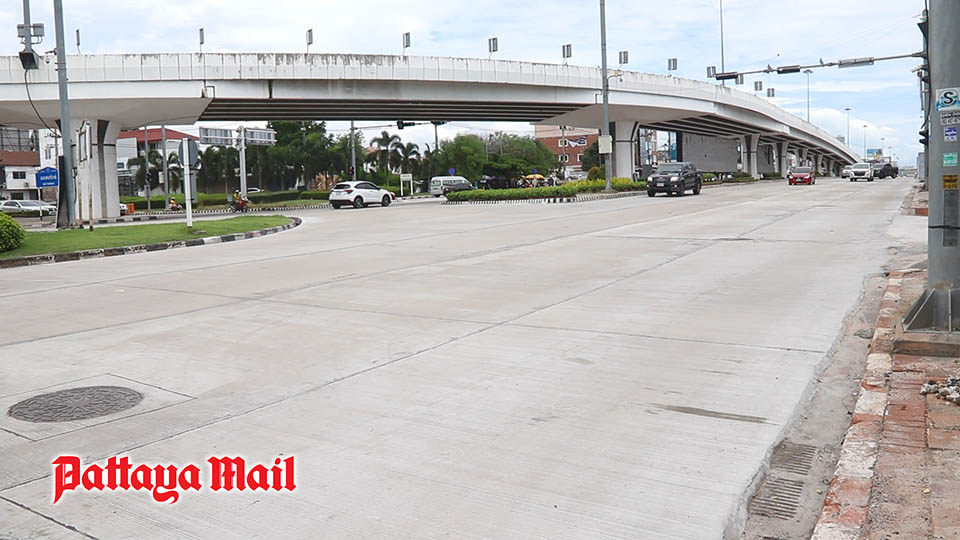
PATTAYA, Thailand – The recent inspection on July 5, revealing that the North Pattaya intersection and the Motorway entrance are now open to traffic on both sides, may seem like progress, but the resurfacing work, completed one week past the deadline, leaves much to be desired. Sections of the road remain uneven, and the shoulders and sidewalks are not fully restored to optimal condition, detracting from the overall aesthetics and functionality of this critical thoroughfare.
The road improvement project on Sukhumvit Road initiated in April 2023 and slated for completion by February 2024, drew significant public attention and criticism. The project targeted four key intersections: Chaiyaphruek, Wat Boon Kanjanaram, Motorway, and North Pattaya. These intersections plagued by heavy traffic and deteriorating road conditions, urgently needed repairs and resurfacing.
While the intersections at Wat Boon Kanjanaram and Chaiyaphruek have been completed, the much delayed work at the North Pattaya intersection and the Motorway entrance has severely disrupted local traffic. Despite efforts to expedite construction, delays persisted, raising doubts about meeting the revised deadline of June 2, 2024.
Pattaya City has regularly updated the public on the project’s progress and collaborated with the police to manage traffic during construction. However, recent reports indicate that parts of the project remain unfinished, with some areas still lacking concrete resurfacing. This has sparked public outcry and accusations of mismanagement and failure to adhere to promised timelines.
Mayor Poramet Ngampichet and the city administration convened an urgent meeting with relevant authorities and private contractors to address the delays and establish a definitive deadline. A decision was made to impose a fine of 114,000 baht per day for any further delays beyond the contract terms. While this step is commendable, it raises the question: why weren’t such stringent measures enforced from the beginning?
The road to recovery for Pattaya’s infrastructure is rocky, not just because of the physical state of Sukhumvit Road, but due to the erosion of public trust. The city’s administration must take accountability for the delays and incomplete work that have inconvenienced residents and businesses alike. Public dissatisfaction is not merely a reaction to the project’s timeline but to a perceived lack of transparency and efficiency in its execution.
As Pattaya City officials prepare for another inspection and a press conference to discuss the project’s completion, it is crucial that they address not only the physical state of the road but also the concerns of the community. A thorough and honest communication strategy is needed to rebuild trust and ensure that future projects are managed with the diligence and foresight that the public deserves.
The Sukhumvit Road project should serve as a lesson in project management and public accountability. It is not enough to complete the task; it must be completed well and on time. Pattaya’s residents are entitled to roads that are not just passable but exemplary, reflecting a city that values its infrastructure and the well-being of its citizens.








